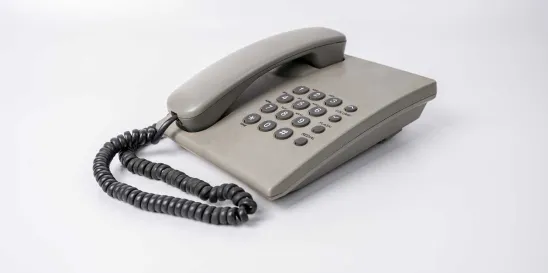The enforceability of online consent forms should be a fairly straightforward matter in TCPA cases, but some courts struggle to apply the rules properly.
That was not the case in Thompson v. Replacements, LTD 2024 WL 1253836 (E.D. Mo. March 25, 2024) where a court dismissed a case at the pleadings stage based on a consent provided by the Plaintiff online.
Thompson is fairly unusual in a couple of ways.
First, courts almost never consider consent forms at the pleadings stage–they are bound to look only at the allegations of the complaint and not external matters. Consent forms on websites are almost always “external” because a Plaintiff rarely pleads the existence of consent in the complaint.
But in Thompson the Plaintiff pleaded the consent he accepted was invalid. That allowed defendant to present to the court the background on the consent–including the full language of the consent and the double opt in process that was required to accept it.
As the Court recites matters Plaintiff agreed to the following:
By signing up via text, you agree to receive recurring automated promotional and personalized marketing text messages…from Replacements, Ltd. at the cell number used when signing up. Consent is not a condition of any purchase. Reply HELP for help and STOP to cancel. Msg frequency varies. Msg and data rates may apply. View Terms, Privacy & Promo Details.
Although Plaintiff alleged he did not provide his phone number on the form Defendant argued in their motion to dismiss that a double opt in feature served as both a signature and a confirmation of the number he was consenting to receive calls from:
Once Plaintiff provided his cellular telephone number and agreed to receive text messages from Replacements, a “double opt-in” message was sent to his cell phone. This “double opt-in” message required that Plaintiff confirm his consent to receive advertising text messages, which Plaintiff did by sending a confirmation text message to Replacements from his own cell phone, 314-681-2877.
Not bad.
The Court agreed with the defense and dismissed the case finding the consent Plaintiff provided via the two-step process was sufficient to constitute express written consent.
In getting there the Court gave a very tight (and correct) synopsis of the law that should be helpful to other defense litigators out there defending webform cases:
The FCC has determined that telemarketers may “obtain prior express written consent using any medium or format permitted by the E-Sign Act,” including “email, website form, text message, telephone keypress, or voice recording.” In the Matter of Rules & Regulations Implementing the Tel. Consumer Prot. Act of 1991, 27 FCC Rcd. 1830, 1844 (Feb. 15, 2012). The written agreement must include a “clear and conspicuous disclosure” informing the registrant that “[b]y executing the agreement,” he or she agrees to receive telemarketing calls. 47 C.F.R. § 64.1200(f)(8)(i). A disclosure qualifies as “clear and conspicuous” if it “would be apparent to the reasonable consumer, separate and distinguishable from the advertising copy or other disclosures.” Id. § 64.1200(f)(3). Morris v. Modernize, Inc., No. AU-17-CA-00963-SS, 2018 WL 7076744, at *1 (W.D. Tex. Sept. 27, 2018).
Simple Simon.
At bottom Thompson is a great decision and one that should help folks looking to enforce online webform submissions. Note the role of the double opt in here, however. Really took the defense to the next level and gave Replacements an easy win.




 />i
/>i
